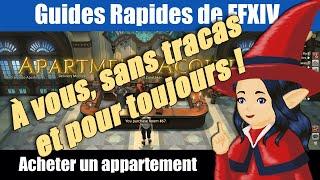A man takes on a roommate -- but his roommate thinks she lives alone.
FENG SHUI is used with permission from Kamran Rathod. Learn more at https://fengshuifilm.com.
Shena lives alone in a small apartment in San Francisco. At least, she thinks she lives alone. Little does she know that a pale, thin man lives behind the drywall of her building. And when Shena leaves her place, a pale, thin man emerges from between the walls to stretch out and enjoy her living space.
So far, Shena isn't aware of her hidden "roommate." But as small, disquieting signs accumulate and she experiences a strange tension alone at home, she begins to suspect something is up.
Directed by Kamran Rathod from a script co-written with Nick Chang, this short horror-thriller is an artful, unique and unnerving take on the home invasion film, twisting the idea inside out and subverting expectations to explore notions of home, displacement and life on the margins of society. Exercising considerable stylistic chops, its voyeuristic, claustrophobic style establishes the dread central to the genre while also putting us in the headspace of a man scrabbling for any space he can get to survive.
The film begins eerily enough, with a dark and ominous opening that sets up expectations of possible voyeurism and violence. Shot with disorienting angles and hard, angular shadows, a foreboding presence sits in the dark, sharpening something by hand with a knife by the light of an aquarium. But it scurries away when a woman enters her home after work, noticing the strange wood shavings left behind.
That foreboding presence is a man, and the film subverts traditional genre expectations by detailing his constrained, narrow existence in the walls of the home. A few personal effects -- a photograph of a woman, as well as of the man in front of the house during happier days, books about home and feng shui -- fill in some background. Now confined to a space behind the wall, he exercises to keep from getting stiff, draws when he can and sneaks out when Shena leaves. The storytelling is attentive to Shena's experience, establishing her notice of certain uncanny details and allowing the film to build tension. But the intimate details of the narrative belong to the pale man, situating viewers within his cramped, furtive existence.
The film has no dialogue, but a rich sound design and a well-placed electronic pop song provide layers of meaning and experience that are both ironic and sinister. Actor Natalia Dominguez relays Shena's growing awareness of another presence in her home with a subtle, precise wariness, while actor Bobby August, Jr. offers less a performance and more a haunting embodiment of a man who is both a specter on the hidden margins and a being reduced to desperation. Portrayed as an almost ghoul-like presence at first, we as viewers never quite get a look at his face until near the film's end. When we get a fleeting glimpse of just how reduced and barebones his existence is, it provokes a set of entirely new questions -- it's not just about if or when Shena will discover him, but how he got there in the first place.
Memorable, chilling and cerebral, FENG SHUI was conceived and created amid San Francisco's latest housing crisis, adding a layer of awareness to its horror stylings. There's no dramatic catharsis and the storytelling doesn't compromise its fragmented, elliptical tone or its eerie atmospherics to the very end. But the film leaves us with a final, chilling image, one whose unsettling power might cause some viewers to check their vents at home -- but also questions just how feasible the pale man's situation is in real life.
FENG SHUI is used with permission from Kamran Rathod. Learn more at https://fengshuifilm.com.
Shena lives alone in a small apartment in San Francisco. At least, she thinks she lives alone. Little does she know that a pale, thin man lives behind the drywall of her building. And when Shena leaves her place, a pale, thin man emerges from between the walls to stretch out and enjoy her living space.
So far, Shena isn't aware of her hidden "roommate." But as small, disquieting signs accumulate and she experiences a strange tension alone at home, she begins to suspect something is up.
Directed by Kamran Rathod from a script co-written with Nick Chang, this short horror-thriller is an artful, unique and unnerving take on the home invasion film, twisting the idea inside out and subverting expectations to explore notions of home, displacement and life on the margins of society. Exercising considerable stylistic chops, its voyeuristic, claustrophobic style establishes the dread central to the genre while also putting us in the headspace of a man scrabbling for any space he can get to survive.
The film begins eerily enough, with a dark and ominous opening that sets up expectations of possible voyeurism and violence. Shot with disorienting angles and hard, angular shadows, a foreboding presence sits in the dark, sharpening something by hand with a knife by the light of an aquarium. But it scurries away when a woman enters her home after work, noticing the strange wood shavings left behind.
That foreboding presence is a man, and the film subverts traditional genre expectations by detailing his constrained, narrow existence in the walls of the home. A few personal effects -- a photograph of a woman, as well as of the man in front of the house during happier days, books about home and feng shui -- fill in some background. Now confined to a space behind the wall, he exercises to keep from getting stiff, draws when he can and sneaks out when Shena leaves. The storytelling is attentive to Shena's experience, establishing her notice of certain uncanny details and allowing the film to build tension. But the intimate details of the narrative belong to the pale man, situating viewers within his cramped, furtive existence.
The film has no dialogue, but a rich sound design and a well-placed electronic pop song provide layers of meaning and experience that are both ironic and sinister. Actor Natalia Dominguez relays Shena's growing awareness of another presence in her home with a subtle, precise wariness, while actor Bobby August, Jr. offers less a performance and more a haunting embodiment of a man who is both a specter on the hidden margins and a being reduced to desperation. Portrayed as an almost ghoul-like presence at first, we as viewers never quite get a look at his face until near the film's end. When we get a fleeting glimpse of just how reduced and barebones his existence is, it provokes a set of entirely new questions -- it's not just about if or when Shena will discover him, but how he got there in the first place.
Memorable, chilling and cerebral, FENG SHUI was conceived and created amid San Francisco's latest housing crisis, adding a layer of awareness to its horror stylings. There's no dramatic catharsis and the storytelling doesn't compromise its fragmented, elliptical tone or its eerie atmospherics to the very end. But the film leaves us with a final, chilling image, one whose unsettling power might cause some viewers to check their vents at home -- but also questions just how feasible the pale man's situation is in real life.
- Catégories
- Feng Shui



















Commentaires